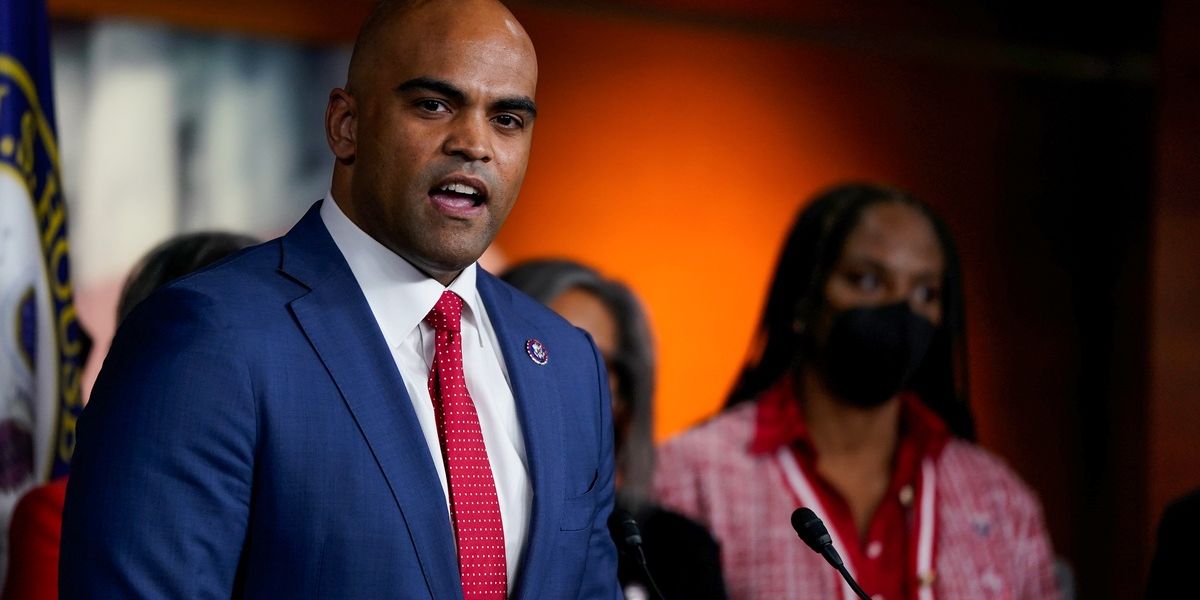Republican Congresswoman Marjorie Taylor Greene has come in last in a recent poll measuring potential candidates for the 2026 Georgia U.S. Senate race, a seat that Republicans view as a crucial opportunity to flip. Democratic Senator Jon Ossoff, who was first elected in 2021, is seeking re-election to a second term in office. However, no Republicans have officially entered the race for the seat yet, leaving the field wide open. This poll offers some early insight into how the 2026 election might shape up.
Why It Matters
Georgia has become a key battleground state in recent elections. In the 2024 presidential election, the state narrowly supported President Donald Trump, making it a top target for Republicans hoping to flip Senate seats and maintain their slim majority in the Senate.
The state’s political landscape has evolved over the past decade, with a Republican governor and two Democratic senators in office. While the state has trended more purple, meaning it’s no longer a stronghold for one party, Republicans are eyeing the Georgia Senate seat in 2026 as a chance to flip it back to red.
However, Greene’s poor showing in the poll raises questions about her electability in a statewide race. Known for her far-right political views, Greene has established a reputation among her conservative base in Georgia’s 14th Congressional District.
But beyond her district, her appeal may not be as strong. If she were to become the Republican nominee, her deeply divisive politics could make it harder for the GOP to secure a victory in what is likely to be a closely contested race. This gives Democrats a clear advantage, particularly in a state where both parties are closely matched.
What the Poll Shows
A new poll by the Atlanta Journal-Constitution, conducted between April 15 and April 24, 2025, among 1,000 registered Georgia voters, revealed some significant findings for the 2026 Senate race. In a hypothetical matchup between Greene and Ossoff, the poll found that Ossoff had a 17-point lead, with 54 per cent of the vote compared to Greene’s 37 per cent. This gap was the largest seen in the poll and highlights the challenges Greene faces in expanding her base beyond the conservative parts of Georgia.
The poll results also showed that Greene’s support was particularly weak among key voter groups. Independents, a critical swing voting bloc, favoured Ossoff by a 60 per cent margin. Furthermore, some moderate Republicans and nearly 10 per cent of Trump voters indicated they would also back Ossoff over Greene, reflecting her struggles with voters who may find her far-right views too extreme. This could signal that the GOP would need to reconsider its candidate selection strategy in order to have a viable shot at winning the seat in 2026.
GOP Contenders for the Seat
The poll also highlighted other potential Republican contenders who may offer a stronger challenge to Ossoff. Republican Governor Brian Kemp, who has not yet made an official decision about running for Senate, was found to be the top GOP candidate in the survey.
Kemp had a slight lead over Ossoff, 49 per cent to 46 per cent, which was within the margin of error. Despite his popularity, Kemp has yet to confirm whether he will run, though he has been giving indications that he is seriously considering the idea. His decision could have a major impact on the Republican field, as his candidacy would likely unify the GOP base and offer the party its best chance to challenge Ossoff in the general election.

Following Kemp in the poll were two other prominent Republican figures—Georgia Secretary of State Brad Raffensperger and Georgia Insurance Commissioner John King. Raffensperger, who was known for standing up to former President Trump’s efforts to overturn the 2020 election results, polled at 39 per cent to Ossoff’s 48 per cent.
King, a less well-known figure, garnered 38 per cent compared to Ossoff’s 51 per cent. Both of these results indicate that while Republicans may have a few solid candidates, they face a tough challenge in overcoming Ossoff’s established coalition.
The Political Landscape of Georgia
Georgia has experienced significant shifts in its political landscape over the past few years, transitioning from a red stronghold to a battleground state. In 2020, the state flipped blue in the presidential election, with Joe Biden narrowly winning Georgia.
This shift was attributed to a surge in voter turnout among younger voters, African American voters, and college-educated individuals—groups that have traditionally leaned Democratic. The state’s evolving demographics make it an increasingly tough challenge for Republicans to win elections without carefully courting moderate and independent voters.
The Georgia Senate seat is particularly important for the GOP in 2026, as it is one of the few seats in a state that Trump won in 2024 that could potentially be flipped. Ossoff’s re-election bid is seen as crucial for Democrats to maintain control of the Senate.
As the only Senate Democrat facing re-election in a state carried by Trump, Ossoff is in a vulnerable position. His race in 2026 will be one of the most closely watched Senate contests in the nation, and the outcome could significantly impact the balance of power in Washington.
Polling Results from Other Surveys
Additional polling data supports the notion that Kemp would be the strongest Republican candidate. A separate poll conducted by Quantus Insights in February 2025, which surveyed 800 registered Georgia voters, showed Kemp leading Ossoff by a narrow 4-point margin, 48 per cent to 44 per cent.
Kemp’s support was notably strong among older voters (ages 65 and up), who tend to vote in higher numbers during elections, and among white voters. He also performed well with non-college-educated voters, who make up a significant portion of the Republican base.
However, the same poll indicated that Ossoff has a solid coalition of supporters, particularly among African American voters, younger voters, and college-educated individuals. These groups have historically shown lower turnout in midterm elections, so much of Ossoff’s strategy will likely involve mobilising these voters to turn out in 2026.
What People Are Saying
Republican strategist Stephen Lawson, speaking to the Atlanta Journal-Constitution, summed up the situation by saying, “If Brian Kemp runs for the U.S. Senate, Brian Kemp will be the next U.S. Senator from Georgia. But if he decides not to run, Republicans need to carefully choose their nominee, as Jon Ossoff has proven he will be a tough opponent.”
What Happens Next
The 2026 Georgia Senate race is still a long way off, but the polling data so far offers some insight into what might unfold. Greene has not yet made a formal announcement about her candidacy, and much of the GOP’s strategy will depend on whether Kemp enters the race. Meanwhile, Ossoff will continue to build his coalition and seek to retain the support of key voter groups in the face of a tough Republican challenge.
In the meantime, Republicans are facing pressure to select a strong candidate who can effectively compete in this highly competitive state. The outcome of this race could determine the fate of the Senate in 2026 and beyond.
Disclaimer: This article has been meticulously fact-checked by our team to ensure accuracy and uphold transparency. We strive to deliver trustworthy and dependable content to our readers.




